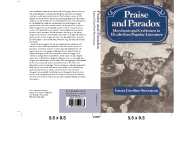Book contents
- Frontmatter
- Contents
- Acknowledgements
- Prefatory note
- Introduction: praise and paradox
- PART I ELIZABETHAN POPULAR LITERATURE
- PART II THE BUSINESSMAN IN ARMOUR
- 4 Principal citizens and chief yeomen
- 5 The merchant as usurer: a stock image in decline
- 6 The merchant as knight, courtier and prince
- 7 Lessons in diligence and thrift
- PART III THE GENTLE CRAFTSMAN
- APPENDICES
- Index
- Past and Present Publications
7 - Lessons in diligence and thrift
Published online by Cambridge University Press: 29 October 2009
- Frontmatter
- Contents
- Acknowledgements
- Prefatory note
- Introduction: praise and paradox
- PART I ELIZABETHAN POPULAR LITERATURE
- PART II THE BUSINESSMAN IN ARMOUR
- 4 Principal citizens and chief yeomen
- 5 The merchant as usurer: a stock image in decline
- 6 The merchant as knight, courtier and prince
- 7 Lessons in diligence and thrift
- PART III THE GENTLE CRAFTSMAN
- APPENDICES
- Index
- Past and Present Publications
Summary
The contrast between the Elizabethan businessman in armour and the merchant of the ‘moneyed interest’ described by Defoe and Steele raises a fundamental problem about the Elizabethan adherence to the Protestant work ethic. Half a century has elapsed since R.H. Tawney published Religion and the Rise of Capitalism; and in spite of the debate over the nature of the connection between Calvinism and capitalism, there is still generally scholarly agreement that the Puritans' doctrine of the calling engendered a new appreciation of diligent labour and a gradually developing certainty that the wealth which resulted from diligence should be considered a measure of godly activity. In its original form, Tawney's thesis dealt mainly with the ‘later phases’ of Puritanism – the post-Restoration theology of Richard Baxter and his contemporaries. At this time, according to Tawney, Puritanism discarded the suspicion of economic motives which had been a characteristic of earlier reform movements:
and offered a moral creed, in which the duties of religion and the calls of business ended their long estrangement in an unanticipated reconciliation …. It insisted, in short, that money-making, if not free from spritual dangers, was not a danger and nothing else, but that it could be, and ought to be, carried on for the greater glory of God.
- Type
- Chapter
- Information
- Praise and ParadoxMerchants and Craftsmen in Elizabethan Popular Literature, pp. 131 - 158Publisher: Cambridge University PressPrint publication year: 1984



